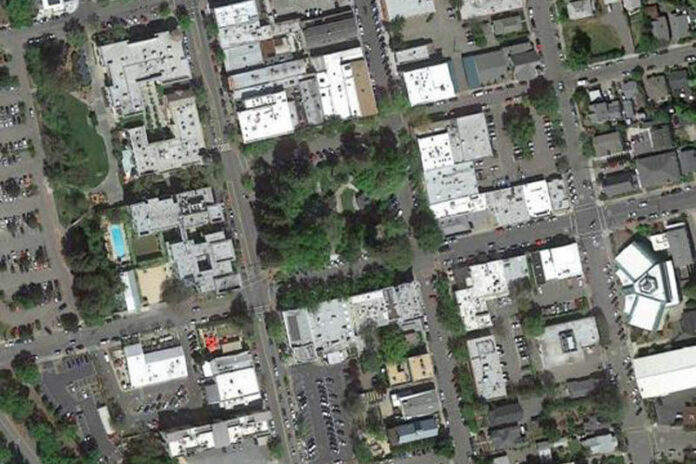City to roll out $600,000 to bring relief to small businesses
At its regular city council meeting on April 20, the Healdsburg City Council approved a plan to reallocate $600,000 of unused funds from the city’s Measure V fund to be put towards a small business loan program in order to help support struggling businesses during the COVID-19 pandemic.
Healdsburg’s finance and administrative services director, Heather Ippoliti, said there is almost $1.5 million in unspent Measure V allocations for street projects that were scheduled to begin this spring, however, staff proposed to reallocate a portion of those unspent funds for the small business loan program.
$600,000 would be allocated to the loan program and $450,000 would be transferred to the city’s general fund in order to support public safety and boost reserves from 22% to 25%.
These changes will still meet the requirements for how the Measure V funds must be spent since it would support public safety and the local economy. The Measure V half cent sales tax was approved by voters in 2012.
Reallocating these funds would delay the pavement maintenance project, however other projects such as the Foss Creek pathway project and the utility projects on Healdsburg and College Avenue would not be impacted or delayed. These projects will use gas tax funds instead of Measure V funds in order to move forward.
As proposed, the Measure V fund ending balance at the end of the fiscal year on June 30 is estimated to be $156,000 down from $203,000.
The small business zero interest loans would be capped at $15,000 and payments would be due starting in January of 2021 with a potential three-to four-year term for completing payments.
“The goal would be to begin potentially paying off in January and maybe a three or four-year term to pay it off because obviously there are going to be some challenging times between now and January,” said David Kiff, who’s been hired by the city part-time to assist with COVID-19 recovery.
The funds could be used for lease or mortgage payments, wages and benefits and other necessary services. Preference may be given to those businesses that have already attempted, but were unsuccessful at securing a federal Paycheck Protection Program loan. Businesses that apply for the loan would also have to have some sort of brick and mortar element to their business.
Kiff said he worked with Healdsburg Chamber of Commerce CEO Tallia Hart to nail down the basic ideas for the small business loan program.
Kiff said the hope is to start the application process as early as Wednesday and to start getting money out by May 10.
Councilmember David Hagele said he has been looking at what the city of Roseville has been doing with their business loan program and he said they created a tiered loan program, where micro businesses of up to five employees were capped at a $5,000 loan and small businesses of 6 to 25 employees were capped at a loan of $15,000. He said they approached the application process similar to that of a grant application process.
City Manager David Mickaelian said while Roseville is a larger city and a much different animal, the city of Healdsburg could consider how the loan is created with these other ideas in mind.
During public comment, Healdsburg resident Ariel Kelly voiced concern about making such a swift budget expense change. Earlier in the meeting, Mickaelian pointed out that while city staff could have taken more time to create “a more baked” program, he said the city wanted to give staff flexibility in crafting the program and to be able to respond quickly.
“I spoke to a number of microbusinesses within the last week when this was being contemplated and there is a need there,” Hagele said, noting that he liked the idea of allocating loans to businesses who may have been unsuccessful in securing federal aid . “We are hearing stories of smaller businesses that may have missed out and I think from the very beginning the narrative has kind of been, ‘Let’s see what comes down from the state, let’s see what comes down from the federal government and then we take a look at where are the gaps we can fill.’ I look at this program as one of those attempts to fill the gaps.”
Resident Deb Kravitz echoed Hagele’s thoughts about the need for small business aid.
“If our small town businesses are hurting then our families and our residents are hurting. I urge you to approve the amendment and move forward with great speed,” Kravitz said.
Resident Walter Niederberger also supported the program but suggested that council expand their view and consideration of the current fiscal year to that of a wider view.
Councilmember Joe Naujokas voiced that he would like to see the city take a closer look at a long term approach to business recovery and aid.
Significant budget impacts
During Monday night’s meeting, Ippoliti also provided an update on COVID-19 related impacts on the city’s budget.
“The impact of this pandemic and the resulting response to slow the spread of the disease has impacted businesses and tourism activities in the city and I’d like to state that the full impact is not known at this time. At this time, we still have a stay at home order, so we really don’t know how long this is going to go. The longer it goes, the numbers will change,” Ippoliti said, noting that the full economic impacts of the shelter in place most likely won’t be felt for another two years.
With that said, she pointed out that there already has been a significant budget impact.
According to Ippoliti, the most impacted funds are those that are funded by Transit Occupancy Tax (TOT) and sales tax dollars.
The sales tax revenue shortfall in the current 2019-20 fiscal year is estimated to exceed $944,769 split between the general fund and Measure V with a shortfall of $687,117 in the general fund and a shortfall of $257,652 for Measure V.
The TOT revenue shortfall in the current fiscal year is estimated to exceed $2,085,122 split three ways between the general fund, Measure S and the community services fund. This creates a shortfall of $276,446 for the general fund, $426,446 for Measure S and $1,382,230 for community services.
Measures taken to minimize budget shortfall include keeping several city positions vacant, such as the deputy clerk, senior planner and assistant city manager positions. The city has also reduced part time staff hours and reduced travel and training sessions.
General fund reserves
After the proposed budget amendment of reallocating $450,000 of Measure V funds to the general fund, the general fund reserve will be increased to 25% of annual expenditures, not quite to 30%, but a step up from 22%.
Ippoliti said maintaining adequate reserves at this time is extremely important since that is “what is floating the city at this time.”
Measure V
To date, the city has received $12.9 million in Measure V tax revenue. and has funded $12.1 million in projects and in public safety positions. Another $1.9 million is going toward projects in progress such as street and facility maintenance and public safety projects.
Due to COVID-19 and the resulting shelter in place, the revenue estimate from this measure for the current fiscal year “…is going to be reduced by 12.2% to about $1.8 million from $2.1 million, a reduction of $257,000,” Ippoliti said.
Measure S
The affordable housing tax Measure S, which is funded by the TOT tax, will suffer a shortfall of $426,446. Estimated fund balance at the end of the fiscal year will be at $183,000. Ippoliti said while TOT is down, this particular fund looks “pretty good” due to reserves.
Community Services
Community services is funded 10% by TOT revenue and consequently, is the hardest hit fund.
TOT revenue was budgeted at $3.9 million for the community services fund, and the estimate now is $2.5 million, creating a shortfall in revenue of $1.4 million in revenue for community services. Their estimated ending fund balance at the end of the fiscal year amounts to $416,472 with a reserve of $17,282.
In terms of how this affects the face of community services, Ippoliti said the community services department has reduced part-time staff hours and is putting a hold on hiring a full-time park maintenance person.
The shortfall also means postponing capital equipment expenditures, such as vehicle replacement, reducing or suspending trash pickup, landscape maintenance, mowing and open space activities and suspending or scaling back park planning processes.
Ippoliti will return to city council in May to discuss the financial outlook for the next two years.









